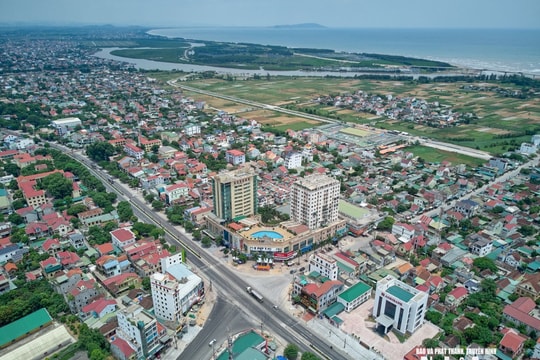Raising children to compete to "eat up", farmers in Dien Kim commune have year-round income
(Baonghean.vn) - For generations, people in Dien Kim commune, Dien Chau district (Nghe An) have been following the traditional profession of growing mulberry and raising silkworms. However, the mulberry growing area is decreasing, so the silk production here cannot meet the market demand.
Coming to Dien Kim commune, Dien Chau district on these summer days, despite the hot weather, the jobmulberry cultivation and silkworm raisingHere, people still maintain it. On the green mulberry fields, farmers are busy harvesting leaves to feed the silkworms.
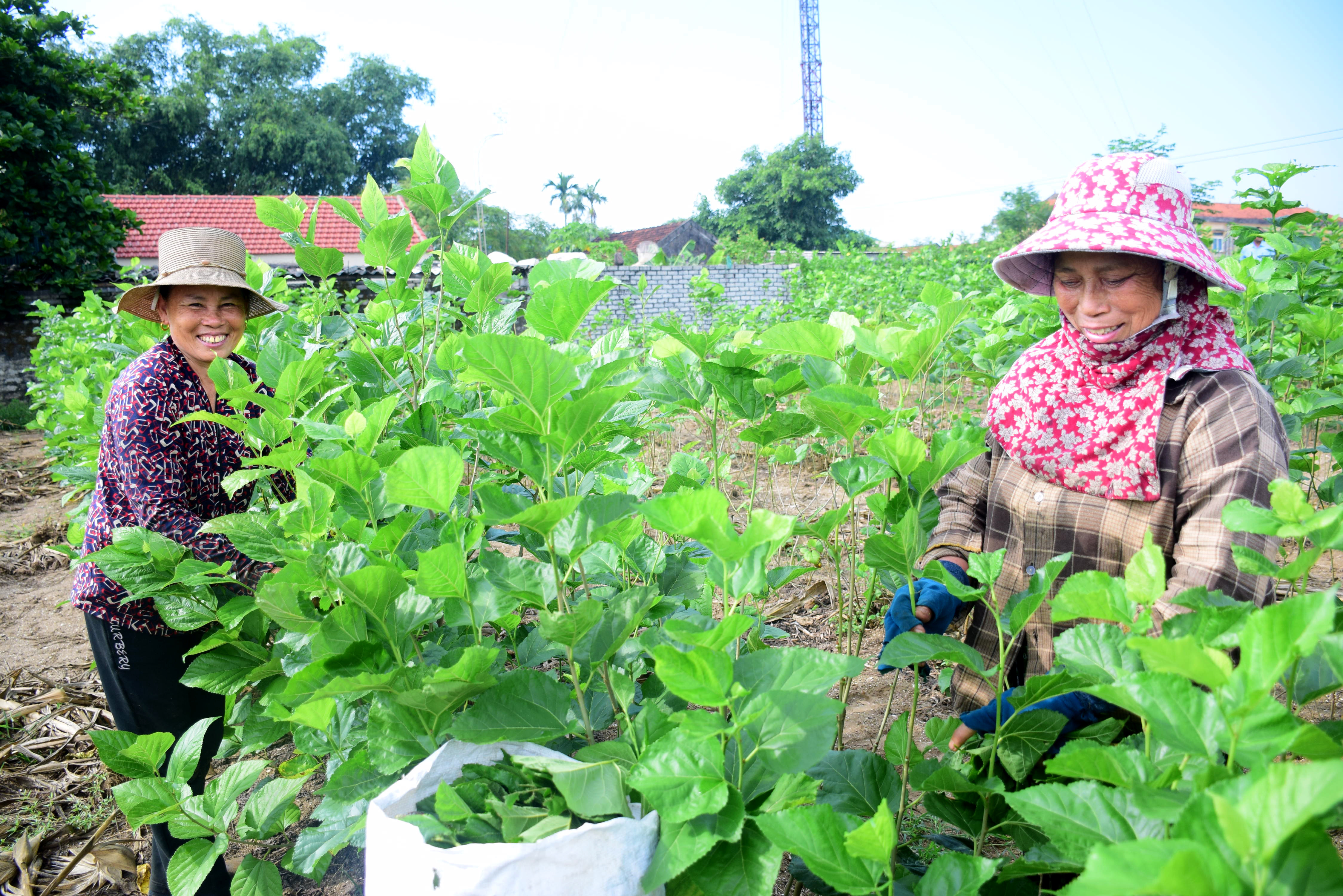
Stopped by Mrs. Phan Thi Thanh's family in Xuan Chau hamlet, at this time the grandmother and grandchild were taking care of 6 children.silkworm cocoonplaced in the corner of the house. Ms. Thanh said that her family is currently growing 10 sao of mulberry, enough to raise 17 silkworms all year round. However, the family divides the number of baskets in half to raise them in batches.
"The young people no longer do the job of growing mulberry and raising silkworms, but instead work in companies and factories. Therefore, it is quite difficult for her to maintain the job alone. However, every 20 days, she earns 3 million VND, which is her main source of income. In the past, our ancestors had a saying: "raising pigs means eating while lying down, raising silkworms means eating while standing", but now people grow new varieties of mulberry with high productivity, so it is less difficult than before," Ms. Thanh shared.
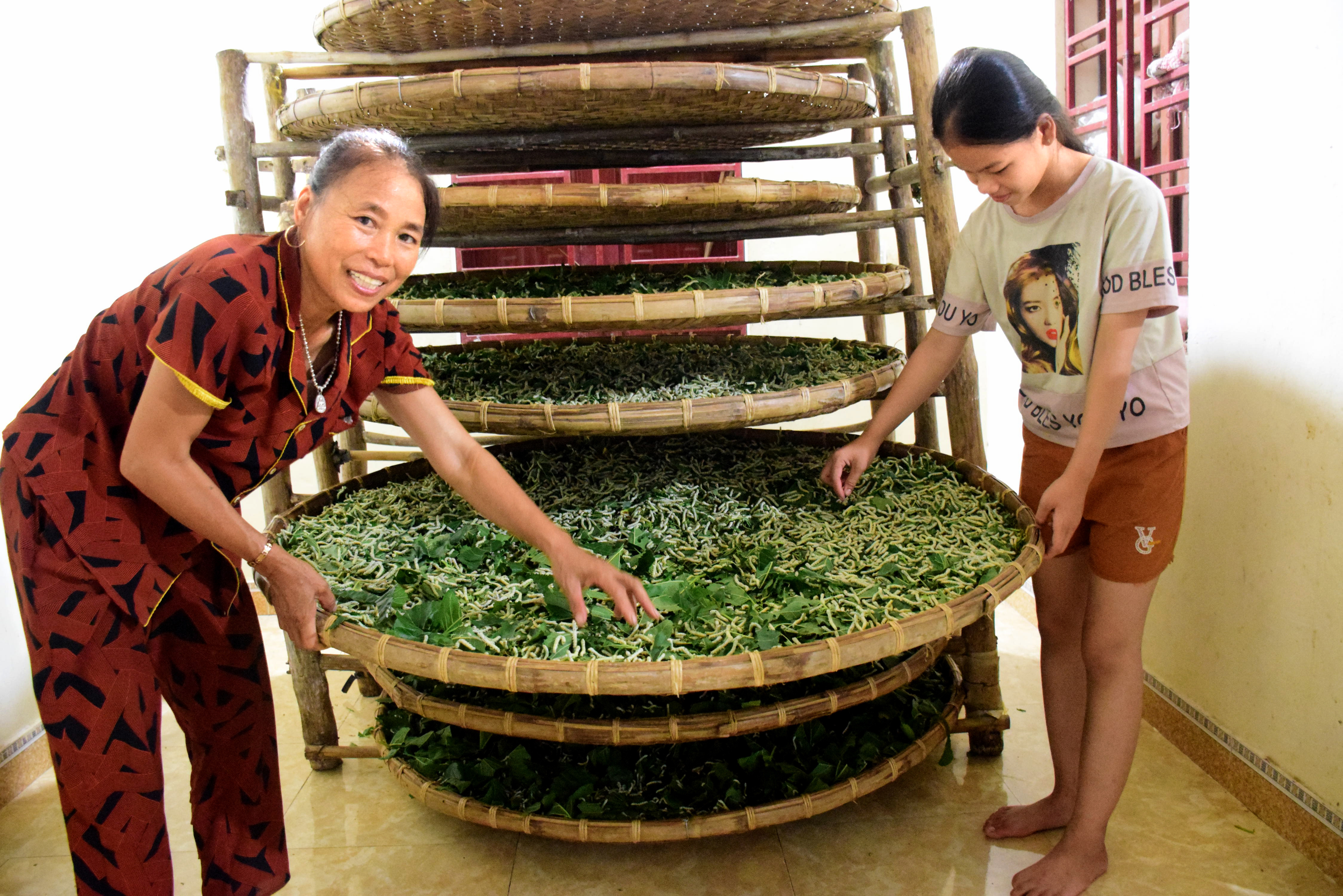
For Mr. Nguyen Thanh Man's family, also in Xuan Chau hamlet, all 8 silkworm trays are raised in a house with air conditioning. Mr. Man happily said that because of investing in raising silkworms in an air-conditioned house, despite the extremely hot weather, almost every batch of silkworms is successful. Silkworms develop well at temperatures of 25 - 30 degrees Celsius, so in the summer, without air conditioning, it is difficult to succeed.
Growing mulberry and raising silkworms since he was young, so despite many ups and downs, Mr. Man has always kept the job and stabilized his life. Currently, his family is maintaining 4 sao of land growing mulberry all year round to raise 8 baskets of silkworms. "When the children grow up, they go to find jobs, the two of them stay at home and grow mulberry and raise silkworms. Although the income is not high, each month they still have 3 million VND to cover their living expenses," said Mr. Man.
Mr. Nguyen Van Truong - Director of Dien Kim Agricultural and Sericulture Service Cooperative said: The local silkworm growing and silkworm raising profession has existed for many generations, but the Dien Kim commune silkworm growing and silk weaving profession village was recognized in 2001. Currently, people in the commune still maintain the profession, however, the majority of workers participating in the profession are middle-aged women and older.
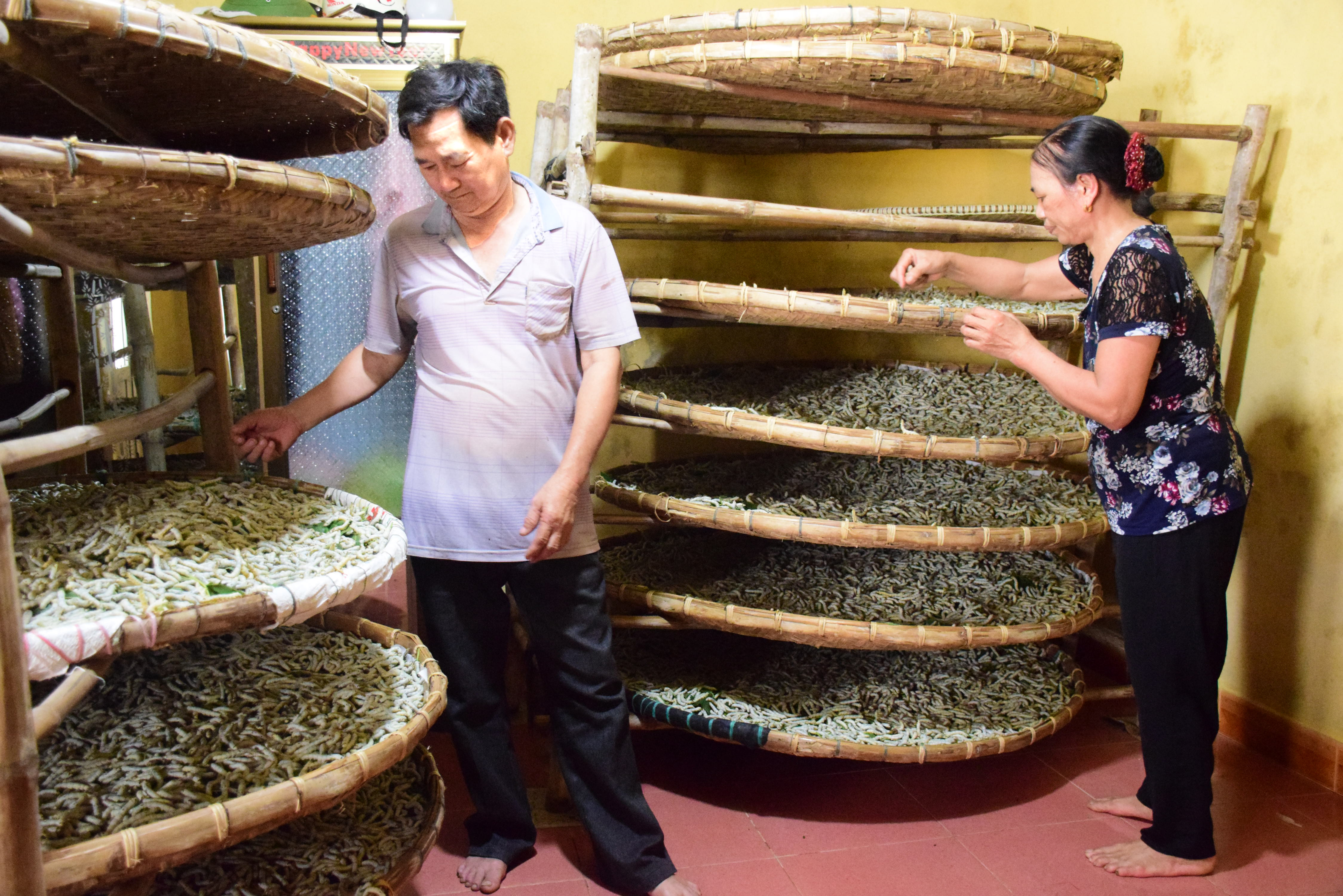
Silk products are always well received and consumed by the market, but the output is not much, because the mulberry growing area is decreasing. Previously, in the 1990s, the whole commune had more than 300 hectares of mulberry, but now there are only 60 hectares. The number of members participating in mulberry growing is currently only 95 households, of which 17 households process and reel silk.
Due to the special nature of the silkworm farming industry, which operates year-round, the village produces 4 tons of various types of silk each year. Part of the entire product is consumed in Hanoi, part in the brocade weaving villages of Western Nghe An, and part is sold to Laos. The quality of the silk is guaranteed, so the selling price of silk here is always maintained at a high level. Currently, the price of grade 1 silk is 1.2 million VND/kg, the lowest grade is 800,000 VND/kg.
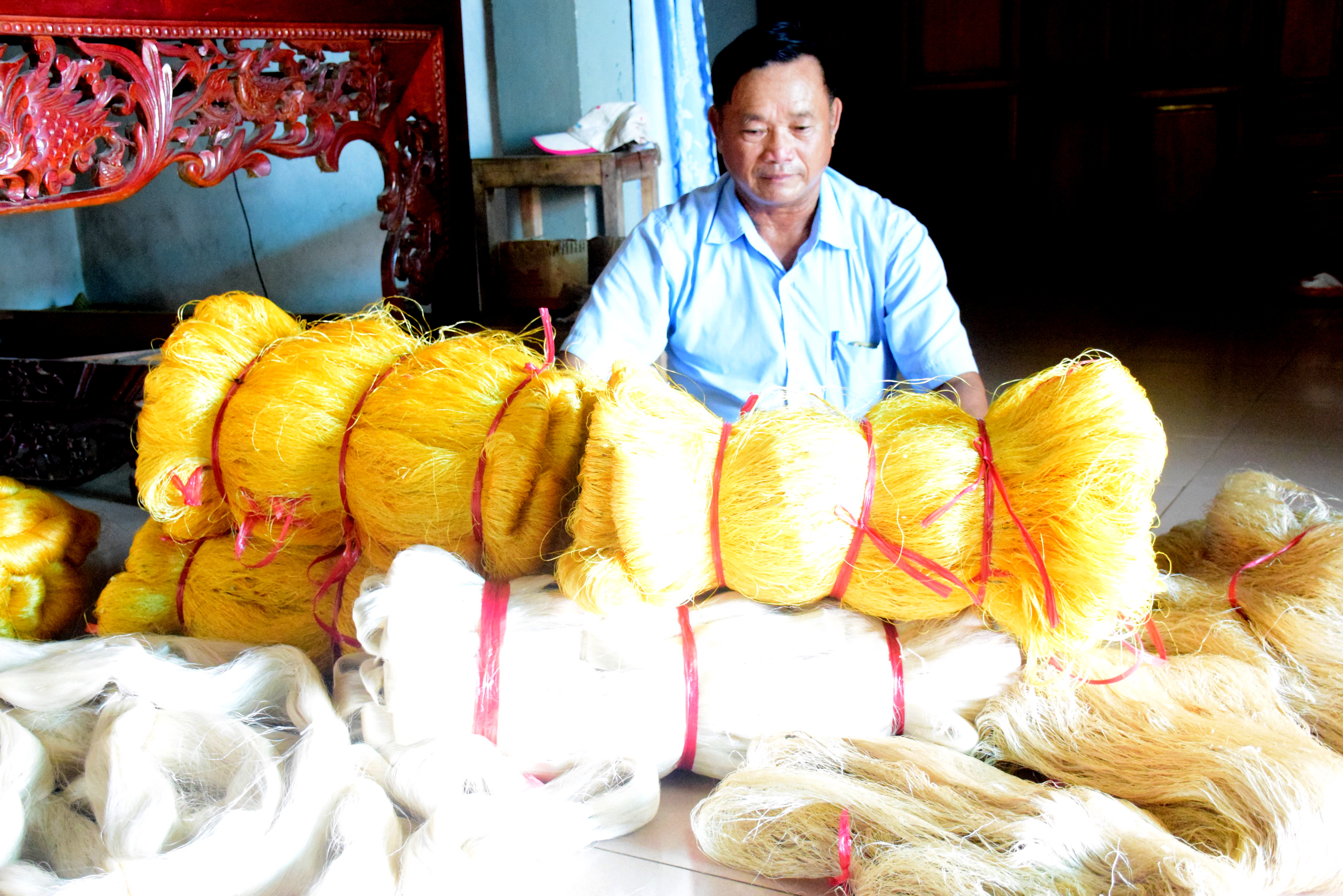
"The demand for silk used to weave brocade clothes, sofa upholstery... is increasing, so the amount of silk in the craft village is not enough to meet the market demand. In order for the sericulture industry to develop and increase product output, households need to be supported with air conditioners and silkworm raising tools. Previously, the State supported 17 air conditioners for 17 silkworm raising households, with a support level of 70%/unit, but currently there are still many households that do not have the conditions to install air conditioners to raise silkworms, so in the summer many batches of silkworms are damaged due to the high temperature," Mr. Nguyen Van Truong shared.






.jpg)
